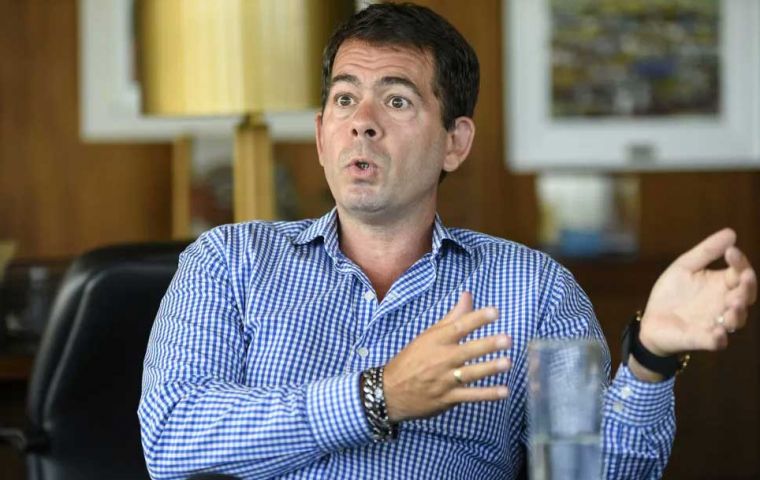MercoPress. South Atlantic News Agency
Uruguayan industry might face encores of Yazaki case
 There is no developed country without a robust industry, García pointed out
There is no developed country without a robust industry, García pointed out After the departure from the country earlier this month of Japanese autopart maker Yazaki, Uruguay's Chamber of Industries (CIU) President Leonardo García warned that the South American country's situation might encourage other foreign companies to follow suit.
In García's view, Uruguay's industry has been going through a crisis under President Luis Lacalle Pou, who will be fulfilling his 5-year term on Feb. 28. Yazaki's leaving -or relocating to Argentina and Paraguay rather - is a clear indicator of the growing crisis that has rendered competition unviable.
García insisted it was paramount to create policies that allow the sector to recover its competitiveness as other business groups are also withdrawing from the country. He also underlined the need to modernize labor relations with the unions to avoid an environment of persistent conflict, as other industrial businesses could suffer closures similar to Yazaki's if improvements are not implemented.
He also pointed out that 50% of Uruguay's industrial output was for export. Hence the urgency of having better conditions to compete in global markets, the CIU leader stressed while noting that Yazaki's was not an isolated case as other sectors are showing signs of concern about competitiveness in the current context.
“If we erase the company's statement and put the name of the last industries that left, it fits perfectly,” Garcia argued. Some companies are eyeing production cuts or considering leaving Uruguay altogether and “we don't want that.”
But with competitiveness restrained by increasingly complex and costly regulations for companies, the resulting unfavorable environment for local production has businesses looking elsewhere.
García also said the exchange rate was not the only problem affecting Uruguayan industries. Instead, mounting regulations, new taxes, and red tape should be kept an eye on, particularly regarding the time and costs of permits. “If you add all these factors together, they deteriorate the possibility for a national industry to compete,” he explained.
The price of energy was another key factor because, after sizeable investments in this area, it is time for those costs to reflect favorably on the industrial sectors, García argued.
Regarding the incoming Government of President-elect Yamandú Orsi, García said “we will support any government that promotes actions that improve conditions for national industry.”
He also underlined the importance of boosting local production given that current regulations make no difference between imported and domestic products, which results in an unfavorable environment for Uruguayan entrepreneurs.
Garcia also admitted the CIU needed “a more mature relationship with the union sector” through dialogue that is not based on conflict, which ultimately discourages investment and employment. Booth parties should focus thus on their common interests, he noted. There is no developed country without a robust industry, García also pointed out.




Top Comments
Disclaimer & comment rulesCommenting for this story is now closed.
If you have a Facebook account, become a fan and comment on our Facebook Page!